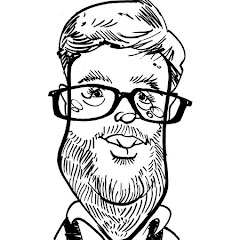In 1998 I awoke one morning and decided that I would stop smoking. I went out and purchased my first nicotine patches and my last pack of cigarettes. Over the course of the next 12 weeks I successively ended my use of cigarettes. That was 11 years ago and I have no desire to take up that habit again, although I do enjoy an occasional cigar whether it be on the golf course, sitting on my patio or at a cigar bar or similar establishment.
As a former cigarette smoker I was ecstatic when Marion county’s first smoking ban went into place. I liked the idea of being able to go into a restaurant of my choice and not have to breathe in cigarette smoke. Now upon further reflection, while still appreciative of the result of the ordinance, I have trouble reconciling it to my views on the role of government in a free market. Ideally, market forces would determine whether or not a particular restaurant or bar allows smoking.
So let’s talk about smoking bans and employee rights. If a person accepts a job at an establishment that allows smoking, such as a tavern, smoke shop or cigar bar, then that employee is accepting the risk that accompanies that job. In the case of smoke shops and cigar bars, there is an expectation that customers will be smoking in these establishments, after all that is the only reason these businesses exist, to sell tobacco products, allowing for their use on the premises is good business.
Do smoking and second-hand smoke pose serious health risks? Yes. There is ample evidence to support the connection between cancer, heart disease and a variety of other conditions. Will banning smoking in all enclosed public places prevent people from getting these diseases? No. Only a complete ban of the sale of tobacco products in the State of Indiana would have a truly significant effect on public health. However, it is doubtful that the State would be willing to forgo the tax revenues gained from their sale. Therefore, a simple smoking ban is in keeping with the lack of political courage that the legislature routinely exhibits. Until such time that the legislature is ready to take such a stand, they should let the market dictate policy.
Wednesday, February 4, 2009
Subscribe to:
Post Comments (Atom)
.jpg)
.jpg)

2 comments:
Ed- The banning of tobacco products would indeed have a significant result: the creation of enormous black market opportunities. 24% of Hoosiers smoke. Sure, some would quit. Others would resort to buying and selling tobacco the same way marijuana and cocaine are bought and sold, with sellers no longer being generally respectable retailers, but thugs with guns.
I'm with you, though. The marketplace is dynamic. It responds to feedback from customers. Most restaurants are already smoke-free as a matter or voluntary policy. Those who have been clinging to the allowance of smoking in their buildings believe they are serving their customers best. If nobody wanted to patronize such places, they wouldn't have any business at all, and the ordinances would be a moot point.
The state won't ban tobacco, though. It is addicted (oun intended) to the revenues tobacco sales generate. The state tends to jealously guard its' revenue streams.
Well said. Prohibition doesn't work.
Post a Comment